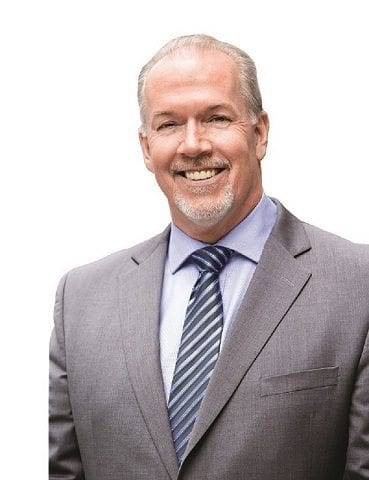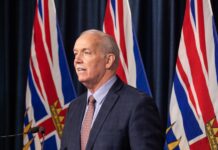IN 2019, the Province says it delivered on work to create a better and cleaner British Columbia for today and generations to come.
The Province made important progress with the CleanBC plan that is reducing pollution and helping use more renewable energy while building a stronger, more sustainable economy.
“We’re proud of our beautiful coast and clean air, but the previous government didn’t do nearly enough to protect what makes B.C. special,” said Premier John Horgan on Monday. “British Columbians care deeply about their province and want us to do everything we can to protect our air, land and water. By rising to the challenge of climate change, our CleanBC plan is creating opportunities today that set us up for a cleaner, brighter future for our kids and grandkids.”
In 2019, the government made it easier and more affordable to save energy by:
* expanding rebates that put up to $14,100 back into homeowners’ pockets for choosing energy-saving products and upgrades to make homes more energy efficient;
* helping low- and middle-income families transition to a cleaner, greener economy with up to $400 in an increased climate action tax credit – received by nearly 50% of B.C. families;
* saving people as much as $8,000 on electric vehicles by topping up support for the popular rebate program that complements federal support, in addition to support for installing new charging stations at home and around the province.
CleanBC reached milestones in 2019, including:
* fighting climate change with accountability legislation that ensures government stays on track to meet climate targets on the path to a 40% reduction in greenhouse gas emissions by 2030;
* fulfilling a key CleanBC commitment by passing legislation that means all new light-duty cars and trucks sold in the province will be clean energy vehicles by 2040; and
* celebrating the launch of 14 Indigenous-driven clean energy projects with nearly $2.5 million in support, including run-of-river hydropower, solar farms and energy-efficiency plans.
The government is working together with business to build a stronger, cleaner economy by:
* promoting growth and innovation, with B.C. well positioned as a destination and supplier for industry leaders in lower-emission operations throughout the province;
* continuing development of a CleanBC job readiness plan to make the most of the opportunities to create good jobs that support families to live and work in the communities they call home; and
* launching a new fund to support emission-reducing projects, including new processing technologies at pulp and paper mills, electric generators and equipment at a mine pumping station, and processing equipment to prevent methane venting at natural gas facilities.













